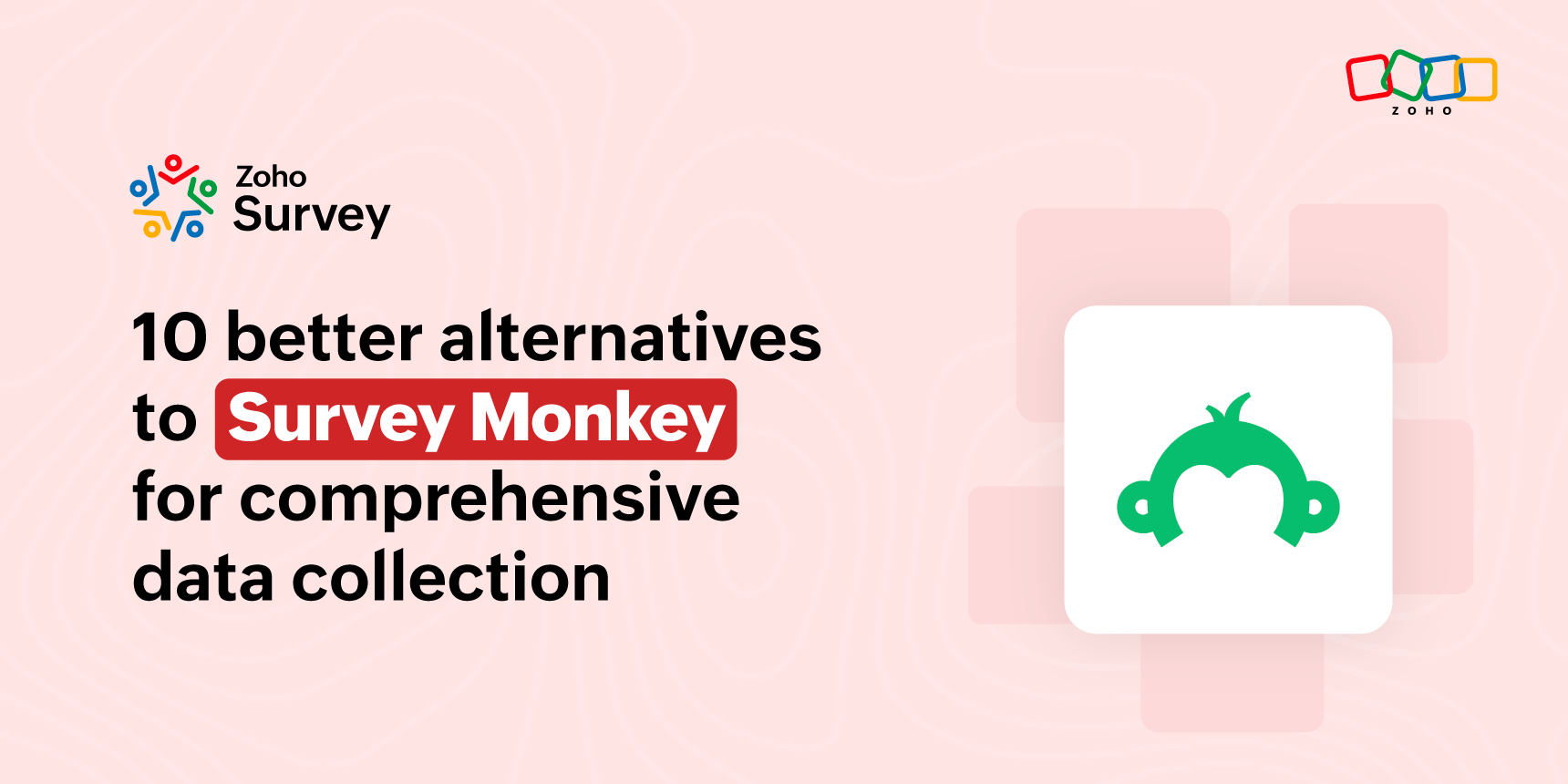Opinions matter: What do people think about COVID-19 vaccines?
- Last Updated : August 12, 2024
- 480 Views
- 5 Min Read
As the world is warming up to the idea of new vaccines, there are many conversations happening about their safety and viability. In a recent poll conducted by Zoho Survey, Willingness to Accept COVID-19 Vaccine, we sought to understand people's perception of COVID-19 vaccines, how willing people are to accept the vaccines, and the factors influencing people towards accepting or rejecting them.
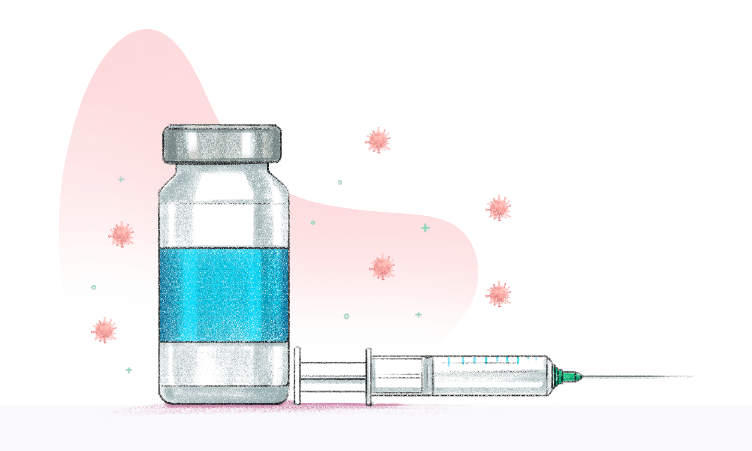
The poll was conducted in two countries—the U.S. and India—in March 2021. Below are the different verticals against which we measured people's perceptions of the vaccines.
Willingness
We wanted to understand how willing people are to accept the COVID-19 vaccine. In the U.S., 21% of respondents reported that they are definitely willing to take the vaccine, while 22% said they were probably willing. Combined, that means that almost half of the respondents are convinced or almost convinced to accept the vaccine.
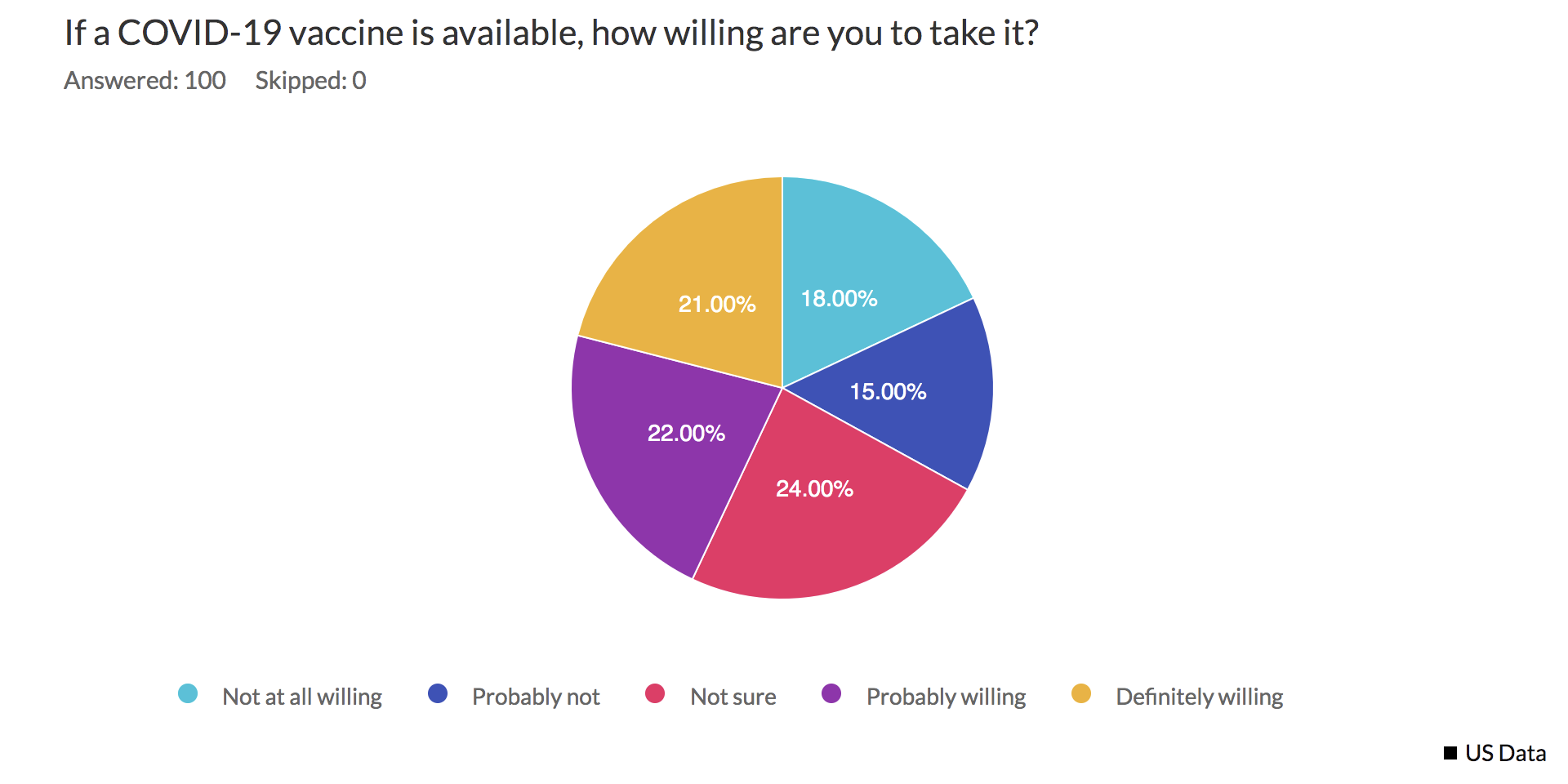
In India, about 47% of respondents are convinced or almost convinced, including 25.86% who said they are probably willing. One way to think about these results is that it leaves room for people’s mindset to change to a positive outlook towards the vaccines, if the subject is approached correctly.
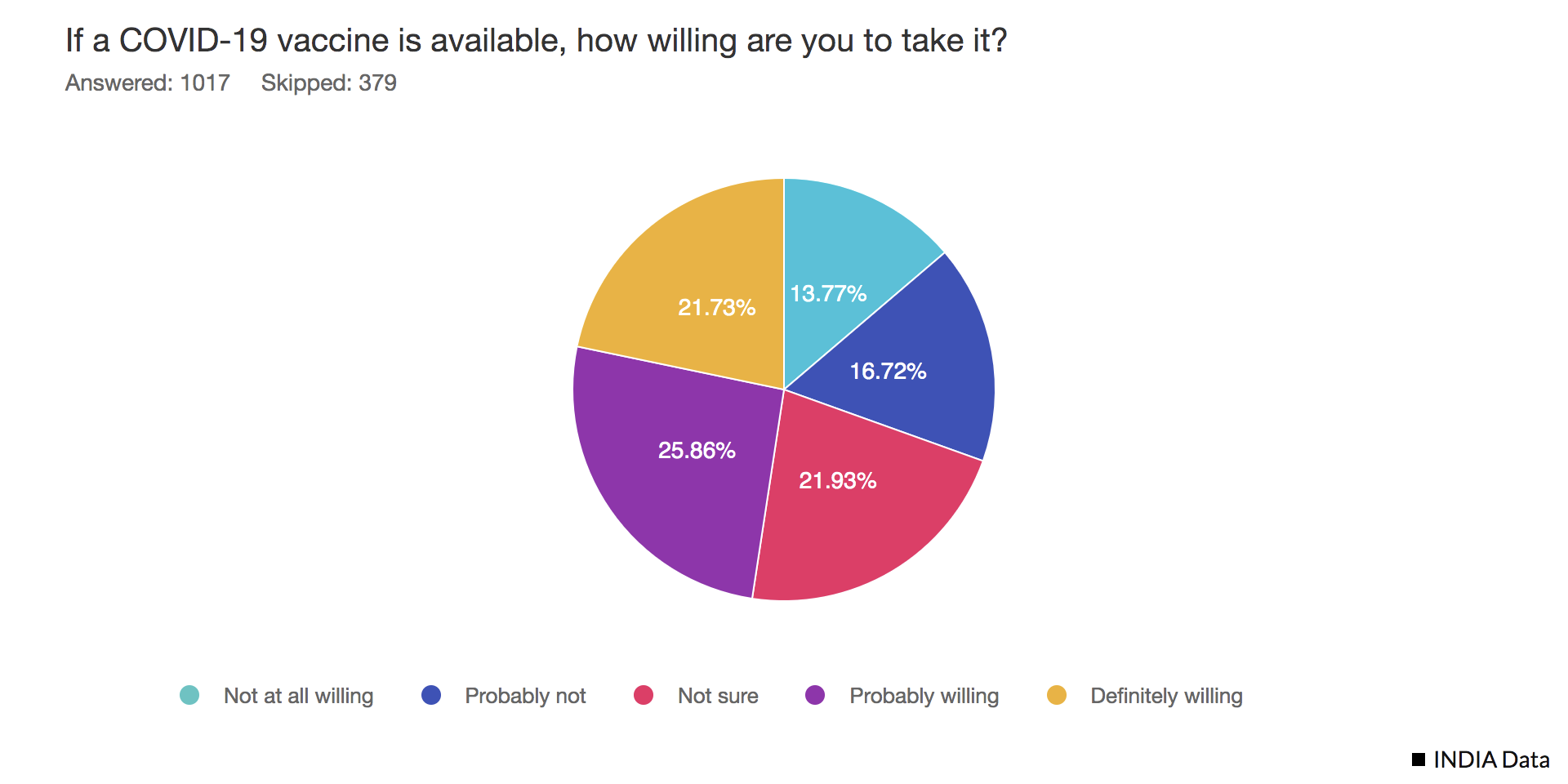
Vaccine safety
Interestingly, for the question “How safe do you think the COVID-19 vaccine is?” the results were somewhat similar for both countries. The highest percentage of respondents in both the U.S. (37%) and India (50%) are not sure about the safety of the vaccine. This implies that based on additional influence and information, they may either decide to accept the vaccine or back out completely.
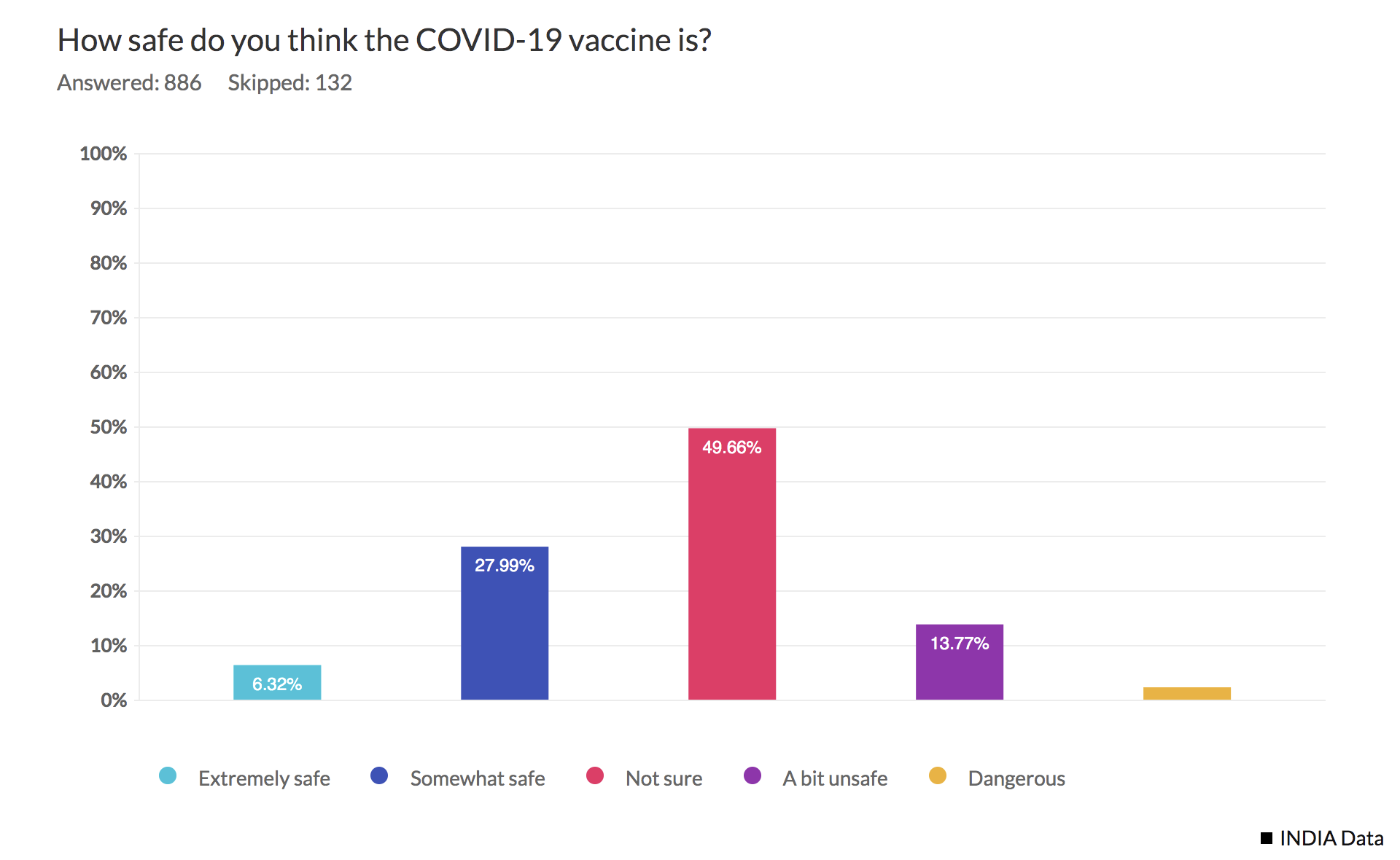
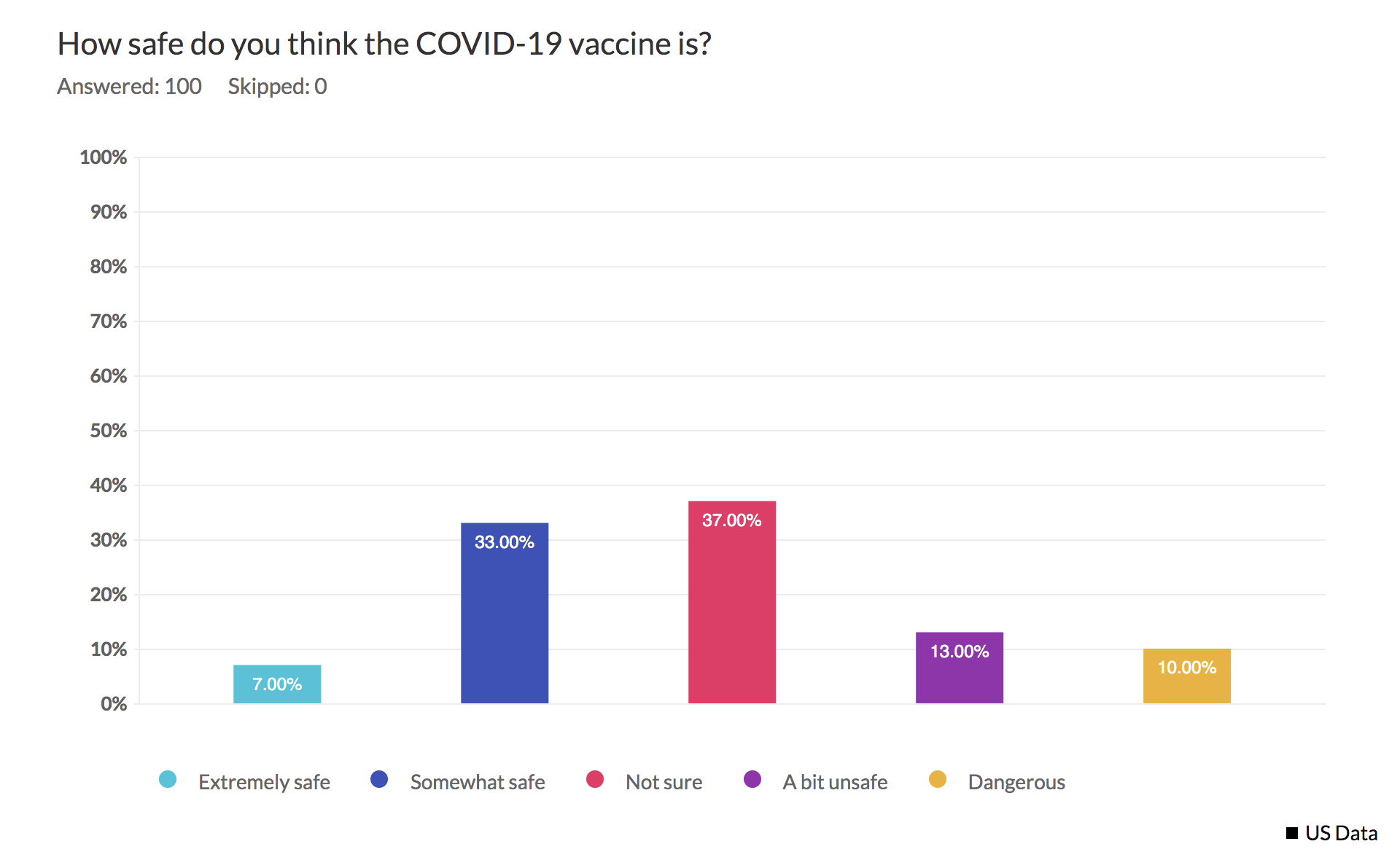
Testing and efficacy
We wanted to understand the reasons behind people’s hesitancy to accept COVID-19 vaccines. On being asked “Why are you not willing to take the vaccine?” in the U.S., the majority of the respondents were concerned about the development process of the vaccine. 49.12% were concerned about whether the testing was thorough enough, 47.37% of the respondents had doubts about the efficacy of the vaccine, and 31.58% were concerned whether the approval process was rigorous enough.
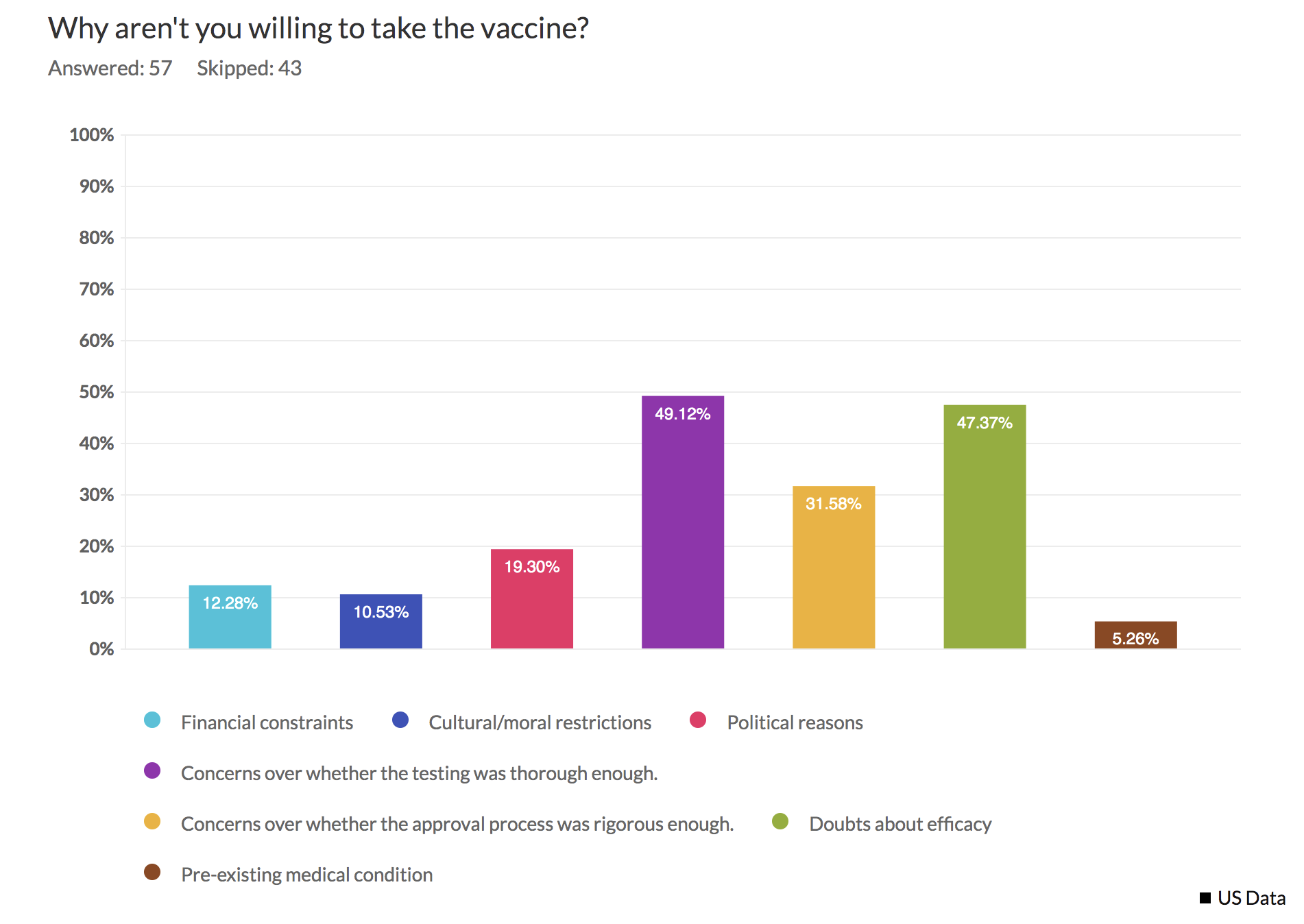
In India, the same question resulted in similar opinions, with slightly more than half of the respondents (57.23%) concerned about whether the testing of the vaccine was thorough enough, and half of the respondents (51.06%) expressing doubts over the efficacy of the vaccine. The takeaway? There is a need for the approval process to be as transparent as possible so that the public can gain confidence in the safety and efficacy of the vaccine.
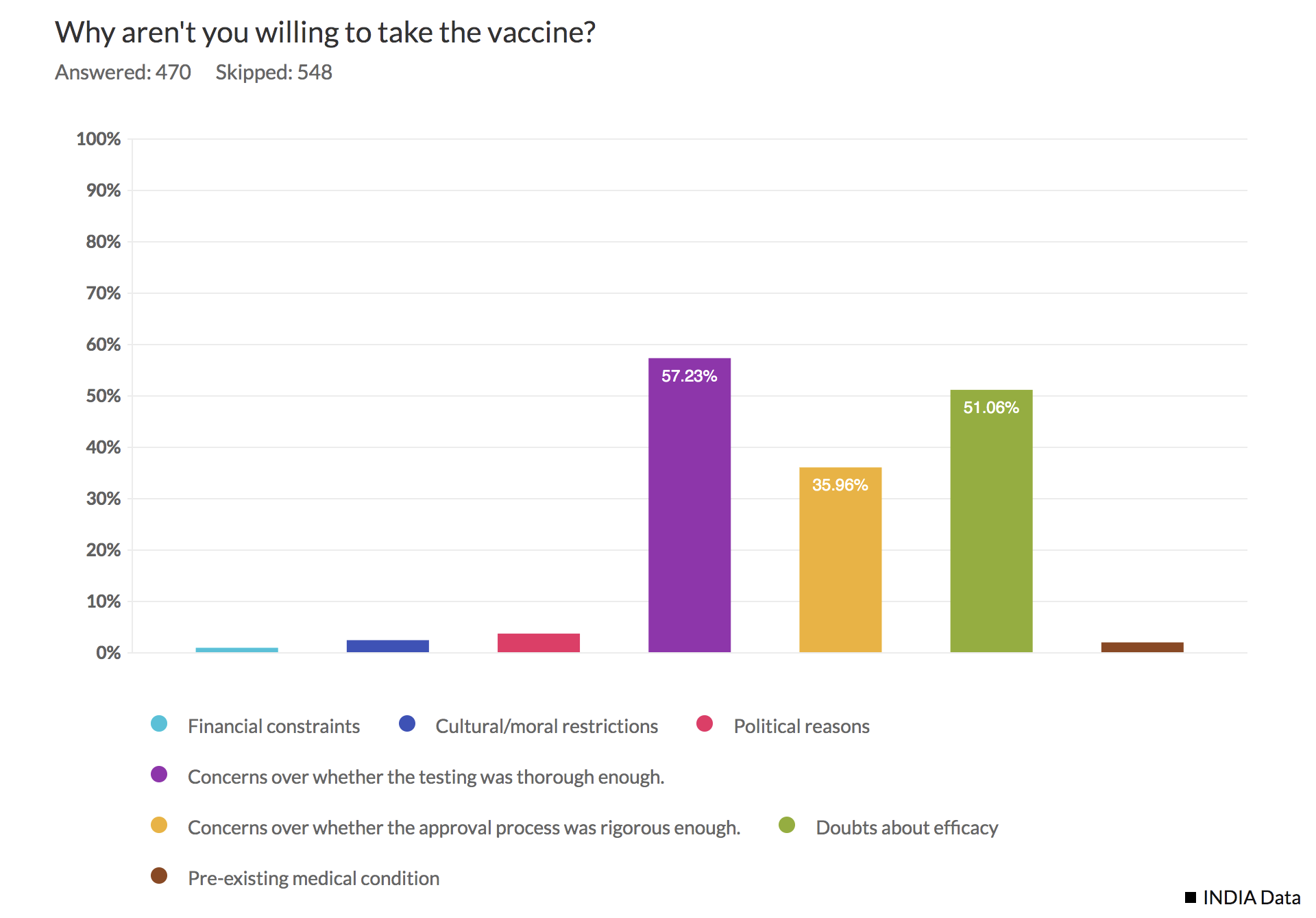
Confidence in the government
In the U.S., when asked, “Are you willing to receive the vaccine if your government has administered shots to its employees first?” 32% of the respondents indicated they would be completely willing, 23% of the respondents replied that they wouldn’t be willing at all, and a significant percentage (27%) landed somewhere in the middle with an answer of maybe. These numbers show that the government could help convince people to accept the vaccine by encouraging more of its employees to take the shot first.
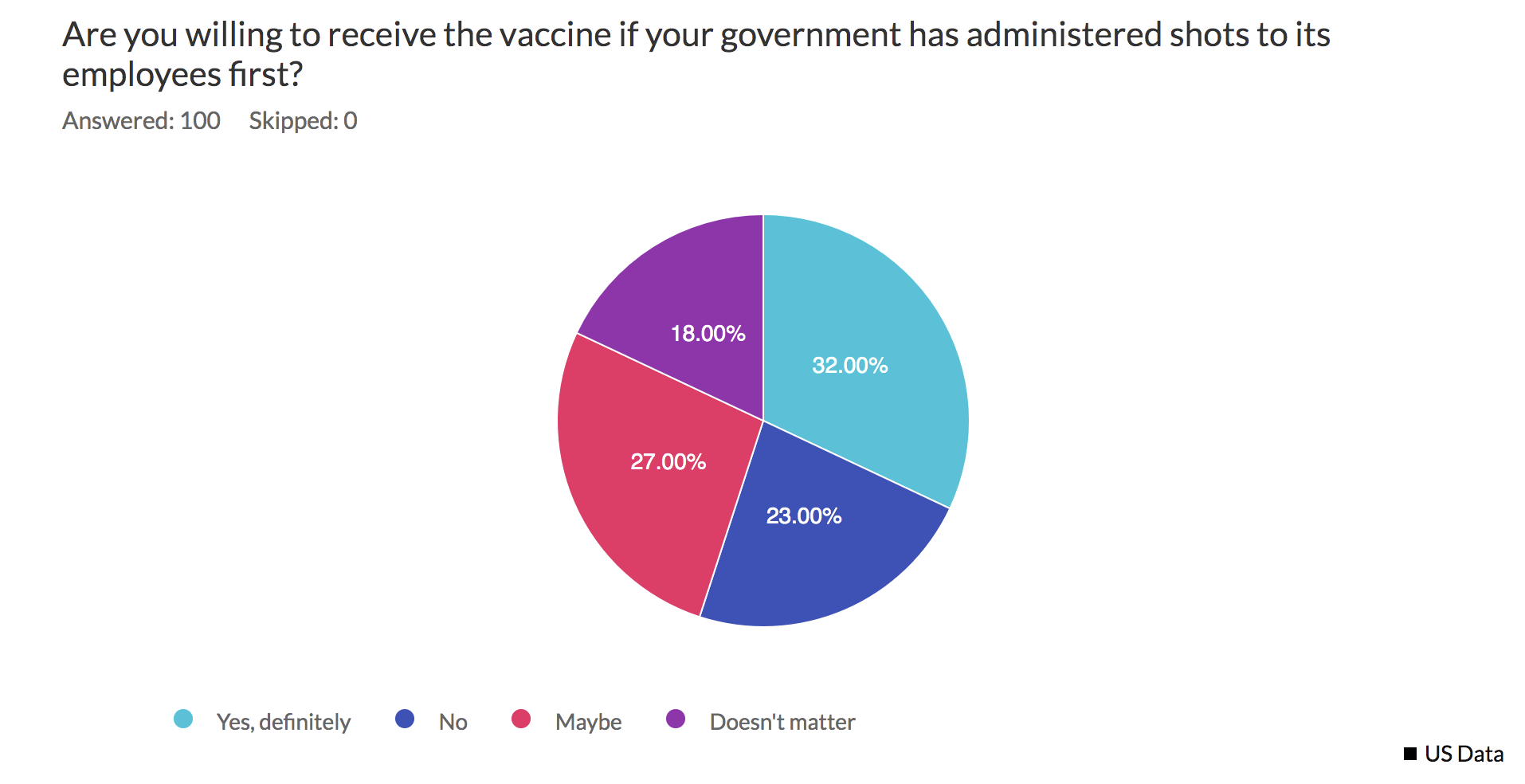
In India, 27.20% of respondents indicated that they would be willing and 28.44% responded with a maybe, while a significant number of respondents (25.40%) felt that it doesn’t matter. Although the percentage believing it doesn’t matter is a bit higher in India, more than half the respondents in both the U.S. (59%) and India (55%) are likely to be more inclined to take the vaccination if they see government employees getting it also.
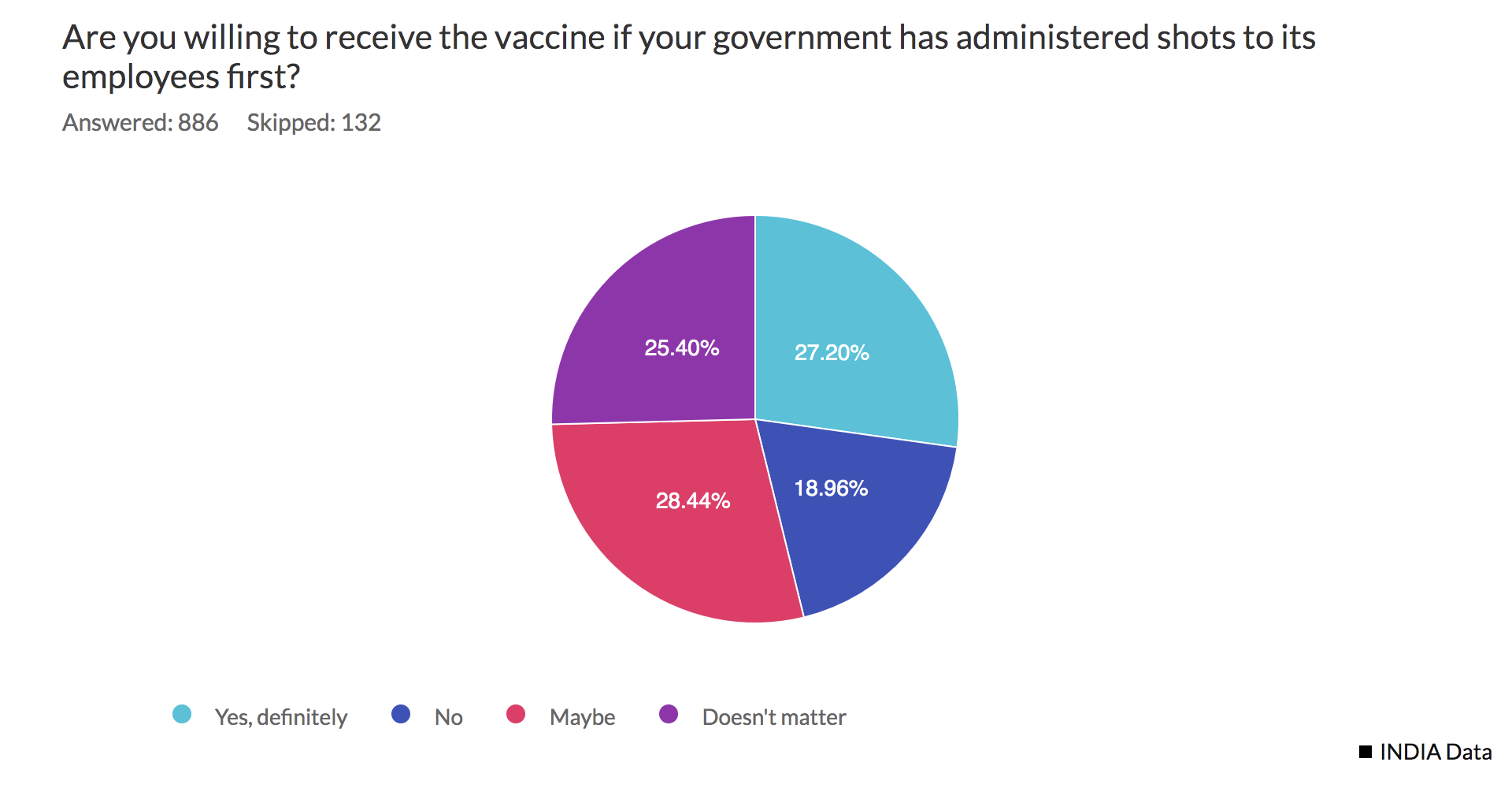
What will it cost to get vaccinated?
We wanted to understand what people thought about the affordability of the COVID-19 vaccines. In both India and the U.S., a substantial percentage of respondents were aware of the affordability of the vaccines.
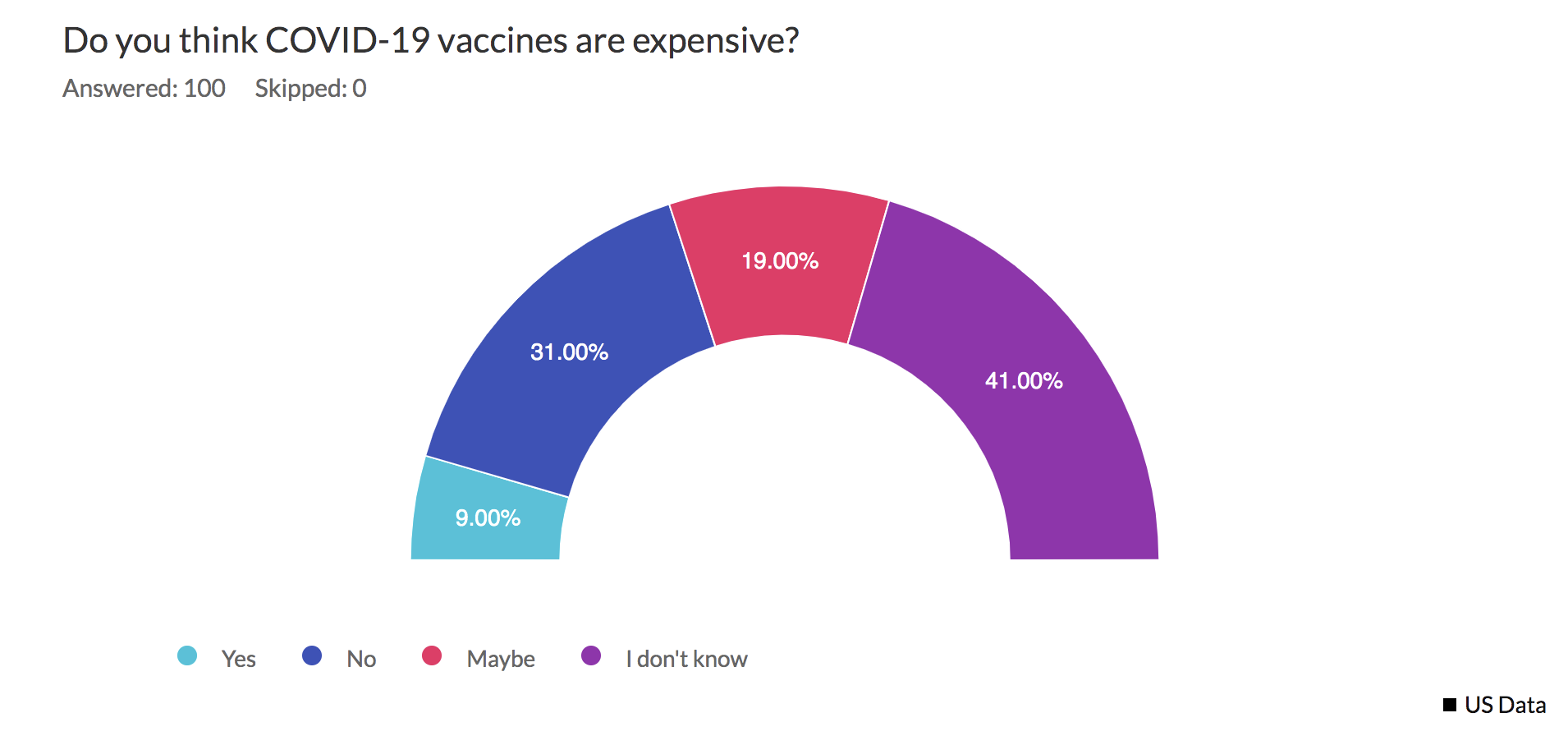
In India, COVID-19 vaccines are available free of cost in all government healthcare facilities. However, a private healthcare provider can charge its patients for the vaccine.
When respondents in India were asked, “Do you think the COVID-19 vaccine is expensive?” 56.32% of the respondents said they do not think so, 8.36% think it is expensive, and 20.43% of the respondents said they simply do not know. This shows that the respondents were fairly well-informed. However, there is still room for improvement, as the 20% who didn’t know need to be educated on the affordability of the vaccines.
In the U.S., when asked the same question, 31% of the respondents seemed to be aware that the vaccine is not expensive for them. However, there is a higher need for public education here—while the federal government has established that individuals do not need to pay for their COVID-19 vaccinations, 41% of the respondents still reported that they did not know whether the vaccines are expensive. There are several possible reasons for the lack of awareness, such as confusion about who would be covering the costs during the early stages of the vaccine rollout. It’s also possible that the information about vaccine costs may not be easily accessible to everyone or that some people may feel a lack of interest to seek out that information.
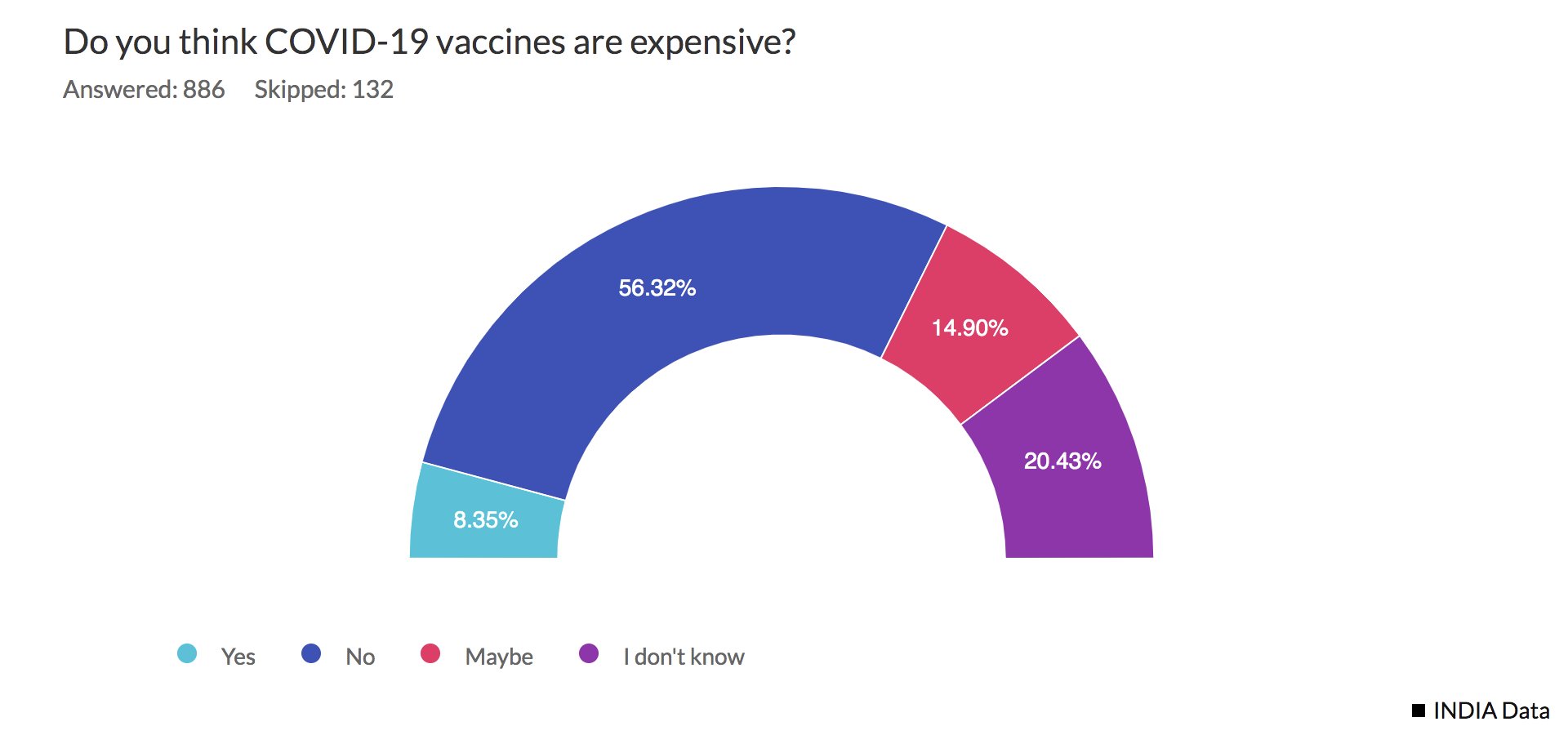
Vaccine’s availability and preference
We measured people's preferences among the available COVID-19 vaccines. In the U.S., the officially authorized vaccines are BioNTech-Pfizer, Johnson & Johnson, and Moderna. Among these, the Moderna vaccine was preferred by 40% of the U.S. respondents, the BioNTech-Pfizer vaccine was preferred by 34.44% of the respondents, and the Oxford - AstraZeneca/Covishield vaccine was preferred by 16.67% of the respondents.
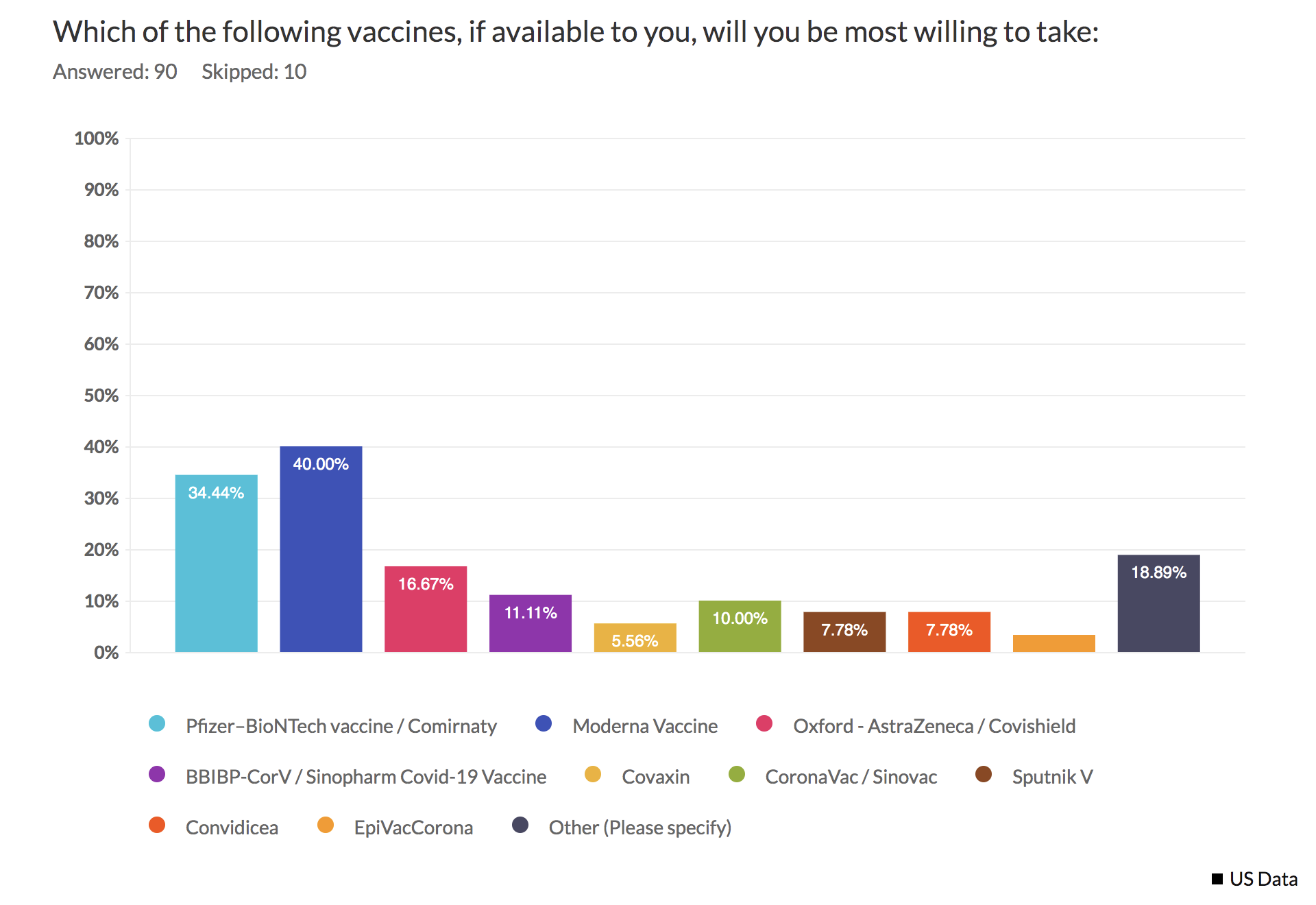
In India, the currently available and administered vaccines are Oxford-AstraZeneca (also known as Covishield) and Covaxin, the first vaccine developed in India. Among these two, 49.36% of the respondents preferred Covaxin, while 35.22% preferred Covishield. The reason for the high preferences for Covaxin and Covishield is probably due to the fact that these vaccines were made in India and are therefore available in higher volume.
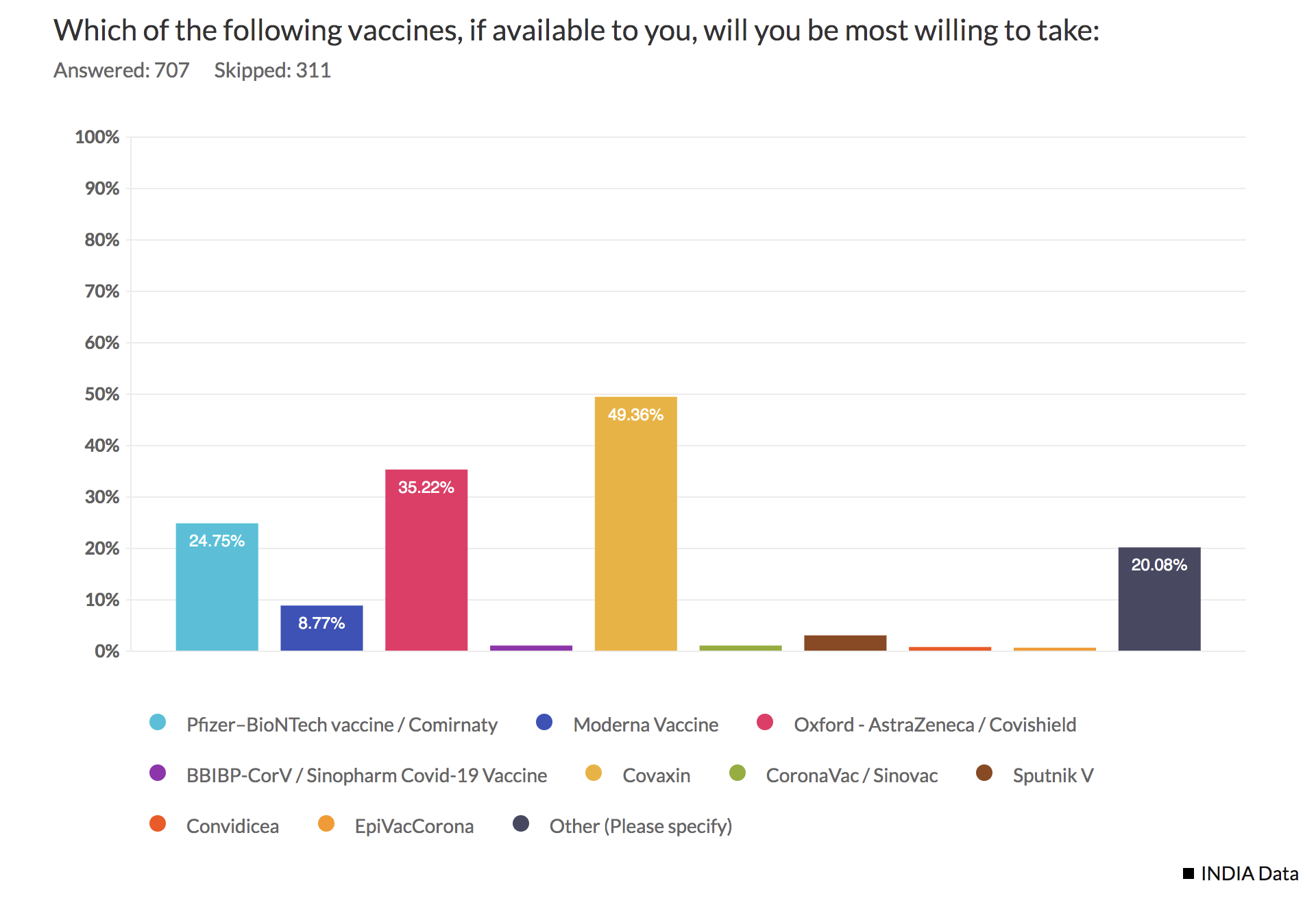
Senior citizens’ opinions
In the U.S., 40% of respondents above age 60 were inclined not to take the vaccine, while 20% were definitely willing to take the vaccine.
In India, 42.88% of the respondents above age 60 were not willing to take the vaccine, and the same percentage (42.88%) of respondents indicated they were inclined towards taking the vaccine.
Some of this reluctance could be due to concerns about the side effects of the vaccine. Although temporary, these symptoms can be overwhelming for senior citizens with little or no support.
Mask it up and keep social distancing
Finally, this wasn’t one of our survey questions, but we know that many people assume getting vaccinated means not needing to wear a mask anymore. Even if you have received a COVID-19 vaccine, wearing a mask is still important to avoid accidentally spreading the disease to others. While our governments are working to spread awareness and provide vaccinations, let’s continue to practice social distancing and wear masks to reduce everyone’s risk.
Stay aware and stay safe!
"In dedication to the memory of Mrs. Mujeeba Qaiyum"

